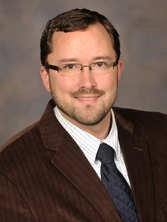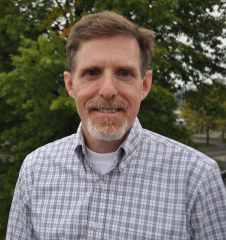Hundreds of new students have begun their college education at West Virginia University’s Davis College of Agriculture, Natural Resources and Design this fall, but they aren’t the only fresh faces on campus. Five new faculty members have joined the College, and they’re already helping broaden the unit’s research agenda and expand student opportunities.
Joe McNeel, director of the Davis College’s Division of Forestry and Natural Resources, described the new cohort of faculty as representing “a mix of our traditional core areas with some entirely new elements, allowing us to expand opportunities for our students, support West Virginia communities in new ways, and expand research.” Their addition to the Davis College faculty will create “unique opportunities and allow us to focus on new challenges,” McNeel added.
“The Davis College and WVU are in great shape with new faculty hires who are going to make a significant difference,” Interim Dean Rudolph Almasy said. The appointments also reflect a key component of WVU’s 2020 Strategic Plan for the Future, specifically its goal of adding 100 new faculty members.
The newcomers, all assistant professors, are: Wesley Burnett, energy economics; Gregory Dahle, arboriculture and urban forestry; Jingjing Liang, forest ecology; Amy Welsh, conservation geneticist; and Mo Zhou, forest economics.
Wesley Burnett

Burnett, who earned a Master’s and Ph.D. from the University of Georgia, studied environmental and natural resource economics with an emphasis in energy resources. He was drawn to WVU by “the institutional support for energy resource economics research and teaching. Starting in the last decade there has been a resurgence of interest in energy economics research, but this area largely lacks adequate textbooks and formal coursework at post-secondary universities.”
He’s already helped to fill that gap by offering a new undergraduate course in energy resource economics this semester. He plans to follow up with an advanced undergraduate and graduate course in energy economics in the spring of 2012.
The population’s undeniable dependence on – and sometimes ambivalent feelings towards – fossil fuels drives Burnett’s interest in energy economics.
“All of us are acutely aware that our current estimated (economic) reserves of crude oil supplies are dwindling,” Burnett said.
“I am not saying this to be an alarmist, but I try to realistically imagine what it is going to be like living in a world in which I can no longer afford to fly in a jet-engine plane or drive a car with a internal combustion engine that runs entirely on gasoline or diesel,” he added. “If I go overseas will I have take a boat, though those run on fossil fuels as well? Barring any technological advancements I expect these things to fully happen within my lifetime. This drives me every day to want to better understand energy resources and the efficient allocation of such resources with unlimited wants. This is the basis of economics.”
WVU and the Davis College, Burnett feels, offer fertile ground for future research.
“I am really excited by the fact that our faculty members and research associates have such a diversity of interests,” he said. “I plan to capitalize on this diversity by collaborating with my various colleagues in future research.”
Gregory Dahle

Dahle’s interest in arboriculture had very practical origins. He wanted to learn to climb trees.
“As a forestry and wildlife management student I thought climbing could be useful in researching cavity-nesting birds and mammals,” Dahle explained. His first job after graduation from Purdue University was in arboriculture, and “I quickly came to enjoy the field.” He enjoyed it so much that he later pursued a Master of Science in the discipline from Purdue, followed by a Ph.D. in Ecology and Evolution from Rutgers.
Arboriculture is the care and management of individual or small groups of trees.
“This includes trees growing along a street, city park, house or office building, whether they’re in a city like Morgantown or a rural location like Masontown,” Dahle said. “Urban foresters manage trees at the landscape level, city-wide, regional or state-wide. Urban foresters address issues such as increasing the canopy cover, pest and disease management, land planning and redevelopment.”
While urban trees provide benefits to people and communities, there are risks associated with having trees near homes and offices.
“Arborists and urban foresters attempt to reduce the risk of tree failure by identifying hazardous trees and mitigating the hazard,” Dahle said. “My research focuses on tree biomechanics which integrates plant biology and mechanical engineering principles. The goal is to gain insights on tree development in order to understand how we can guide growth to develop a structurally sound tree crown and reduce the risk of failure down the road.”
In addition to the collegial faculty and the opportunity to build a potential major in arboriculture, Dahle noted that “The idea of coming to WVU was exciting for my family as my wife and I felt we would have ample opportunities to share our love of the outdoors with our children.”
Jingjing Liang
Liang was drawn from the University of Alaska at Fairbanks to WVU by its “excellent teaching atmosphere, research environment, and a general upward trend” in its forestry and natural resources programs.
The forest ecologist, who earned his Ph.D. from the University of Wisconsin at Madison, said his interest in his chosen field was cemented during a forest biodiversity project during his pursuit of a doctorate.
“I encountered a few global issues such as climate change, carbon cap-and-trade, and deforestation,” Liang said.
His research in WVU’s Division of Forestry and Natural Resources will focus on biodiversity, forest dynamics and geospatial mapping of natural resources. Headquartered in one of the most forested states in the U.S., he expects that “the impact on the state and region could be profound, but like everything else, I will need funding and some luck to succeed.”
He’ll also need a little time to adjust.
“Moving from Alaska to here is no easier than moving from overseas,” he said. “My family is still in the phase of adjusting to Morgantown. We have not even finished unpacking.”
Amy Welsh

Welsh’s area of expertise bridges two disciplines in the Davis College: wildlife and fisheries resources and genetics.
“My research interests lie in using genetics as a tool to help conserve endangered and threatened species,” Welsh explained. “I’m hoping to work with managers in the state and region to identify research questions that help conserve fish and wildlife populations, use genetics to answer questions that may be hard to address in the field, and apply the results to developing management plans.”
She’ll be teaching courses in conservation genetics, which will add to the professional portfolios of program graduates.
“I’m hoping that graduates from our program will have an ability to understand genetic results, how those results can affect management decisions, and be able to develop research questions using genetic concepts,” she said.
Welsh’s own professional portfolio includes another area for potential partnership and expansion: wildlife forensics. After earning a Bachelor of Science in zoology from the University of Maryland, she completed a Master of Forensic Science from George Washington University, which included an internship in wildlife forensics.
“That was my first real exposure to genetics,” Welsh said. “After doing that, I worked in human forensics doing DNA analysis, but then realized I was still truly passionate about wildlife issues.” That rediscovery led her to earn a Ph.D. in ecology from the University of California at Davis.
Mo Zhou
For Zhou, a scholarly interest in economics combined with a love for the outdoors to shape her professional life.
“My initial interest was in the classic economic problem – allocating resources optimally,” she said. “Then I began to look more into the allocation of natural resources, especially forests, due to a passion for the outdoors.”
She earned her Ph.D. in Forest Economics and Management from the University of Wisconsin at Madison and joined WVU’s faculty after serving as an assistant professor at the University of Alaska at Fairbanks.
Zhou was drawn to WVU by the “beautiful campuses, nice people to work with, and tremendous support for new faculty from the University and Davis College.”
West Virginia, with its complex and evolving natural resource industries, offers a promising platform for Zhou’s research interests.
“My current research is focused on multiple-objective sustainable management for timber, carbon credit and biomass under risk and uncertainty, which could greatly improve the financial return of forest investments for landowners and managers and help mitigate regional climate change effects in the state and region,” she explained.
-WVU-
dw/10/19/11
CONTACT: David Welsh; Davis College of Agriculture, Natural Resources and Design
304.293.2394; dwelsh@wvu.edu
Follow @WVUToday on Twitter.